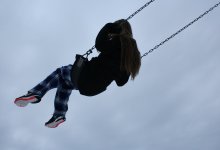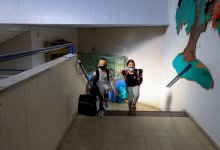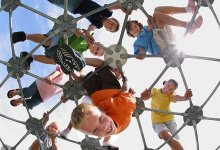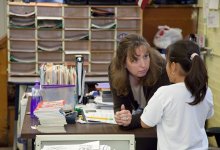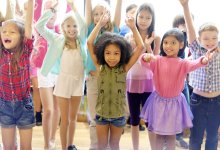Student Wellness
Whether through physical education, health education, or health and nutrition policy within a school, learn about ways to promote and maintain student wellness.
How a School Turns Nature Into the Ultimate Classroom
From interdisciplinary projects to wilderness expeditions, The Greene School is an innovative model for nurturing academic success and student agency.The Sensory Room: Helping Students With Autism Focus and Learn
Imagine a safe space where students with autism can go to calm their bodies and then get back to the business of learning.1MYour content has been saved!
Go to My Saved Content.The Importance of Recess
Recess is often sacrificed to make room for more academics. The research says that’s a big mistake.210kYour content has been saved!
Go to My Saved Content.3 Ways to Help Students Build Attention Stamina
These simple tools and strategies can improve focus in the classroom.Homework: How Much Is Too Much?
Homework has benefits, but the research is clear: there are real consequences to assigning too much.57.5kYour content has been saved!
Go to My Saved Content.Why Teachers Should Grade Less Frequently
Excessive grading stresses out kids and teachers, stifles innovative teaching, and fails to deliver as a true measurement of learning.Time to Play: More State Laws Require Recess
Unstructured playtime is making a comeback in schools as frustrated teachers, parents, and advocacy groups demand legislative action.46.5kYour content has been saved!
Go to My Saved Content.What’s Lost When We Rush Kids Through Childhood
The author of "The Importance of Being Little" on the costs of our collective failure to see the world through the eyes of children.43kYour content has been saved!
Go to My Saved Content.Schools Are Opening Worldwide, Providing a Model for the U.S.
Children are returning to school in countries that are weeks—or months—ahead of the U.S. in battling Covid-19. Here’s how it’s happening.30.1kYour content has been saved!
Go to My Saved Content.Longer Recess, Stronger Child Development
With an hour-long recess, elementary schools can help children develop through increased creative play, authentic SEL, and adequate physical regulation.43.7kYour content has been saved!
Go to My Saved Content.7 Ways to Maintain Relationships During Your School Closure
Suddenly, you’re not in the same physical space as your students. We asked teachers to share strategies for maintaining relationships—both peer-to-peer and student-teacher—when everything’s gone remote.24.2kYour content has been saved!
Go to My Saved Content.The Role of Emotion Co-Regulation in Discipline
Helping students regain their calm after misbehavior doesn’t mean there are no consequences—it ensures that the right lesson is learned.25.3kYour content has been saved!
Go to My Saved Content.6 Ways to Help Students with ODD
Offering kids choices, safe spaces, and positive reinforcement can help teachers avoid problems—or manage them when they arise.15.5kYour content has been saved!
Go to My Saved Content.Research-Tested Benefits of Breaks
Students are easily distracted, but regular, short breaks can help them focus, increase their productivity, and reduce their stress.25.4kYour content has been saved!
Go to My Saved Content.More Than a Check-In: Maslow Before Bloom Throughout the Day
While checking in on students’ well-being at the beginning of class is important, tending to it throughout the day helps students flourish—socially, emotionally, and academically.15.2kYour content has been saved!
Go to My Saved Content.



